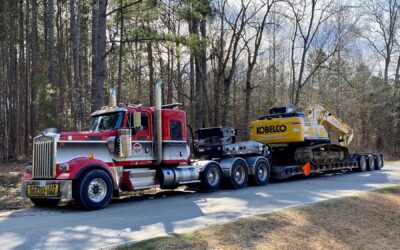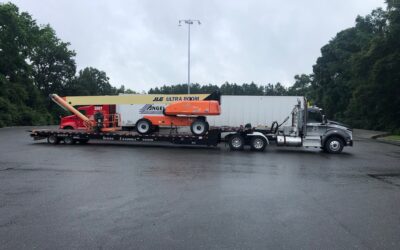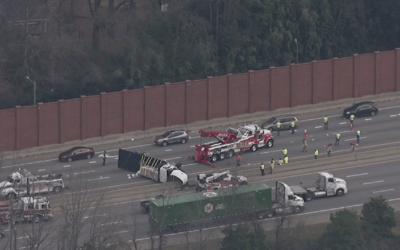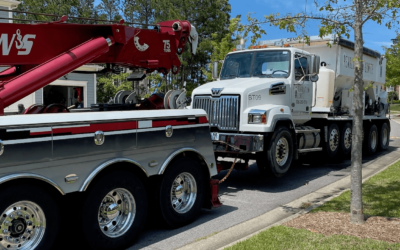How Weather Conditions Impact Heavy Duty Towing Operations

When it comes to heavy duty towing operations, the weather plays a pivotal role in determining the success and safety of the task at hand. Inclement weather conditions can introduce a host of challenges that require careful consideration and strategic planning. Let’s delve into the ways in which various weather conditions impact heavy duty towing operations and highlight the essential measures towing professionals must take to ensure smooth and secure towing processes.
Rain and Wet Conditions
Rain and wet road surfaces significantly alter the dynamics of heavy duty towing. The increased slipperiness of roads poses a higher risk of accidents during towing, and it’s vital for towing operators to exercise extra caution. Hydroplaning, reduced traction, and compromised visibility are common concerns. Towing vehicles and equipment need to be equipped with proper tires designed for wet conditions, and drivers must maintain reduced speeds to prevent accidents.
Snow and Ice
Snow and ice are among the most challenging weather conditions for heavy duty towing. These conditions affect not only the towing vehicles but also the stability of the vehicles being towed. Towing operators must have specialized equipment like snow chains and recovery mats to gain traction on slippery surfaces. Moreover, towing vehicles should be equipped with the necessary de-icing equipment to prevent buildup on the vehicles being towed.
Fog and Reduced Visibility
Foggy conditions severely hamper visibility, making towing operations risky. Towing operators need to rely on advanced lighting systems to enhance visibility. Proper communication protocols between the towing vehicle and the vehicle being towed are crucial to maintaining a safe distance and avoiding collisions. In cases of extreme fog, it might be necessary to postpone towing operations until visibility improves.
High Winds
Strong winds can make towing large vehicles challenging, especially if the load is top-heavy. Towing operators must be aware of wind conditions and adjust their driving techniques accordingly. Proper load distribution and securing mechanisms are critical to prevent swaying and maintain stability during transit. In extreme cases, it might be necessary to postpone towing operations to avoid accidents or damage.
Extreme Temperatures
Extreme temperatures, whether hot or cold, can impact the performance of both towing vehicles and equipment. Cold temperatures can lead to frozen components and reduced vehicle performance, while high temperatures can cause overheating. Towing professionals should conduct thorough inspections before embarking on operations in extreme temperatures. Adequate cooling and heating systems should be in place to ensure the vehicles and equipment operate optimally.
Storms
Thunderstorms bring about a combination of challenges, including heavy rain, wind, lightning, and potential flooding. Towing operators must exercise caution during thunderstorms to avoid hazards like falling trees, power lines, and flash flooding. Lightning also poses a risk to both towing operators and the vehicles being towed. Operators should have a clear understanding of safe locations to wait out thunderstorms and minimize risks.
Call Dean’s, No Matter the Weather!
Weather conditions have a significant impact on heavy duty towing operations, and towing professionals must be prepared to adapt to various challenges brought about by rain, snow, fog, wind, extreme temperatures, and thunderstorms. By trusting Dean’s with your heavy duty towing needs, you don’t need to think twice about how weather will impact the job. Adequate training, proper equipment, and a keen understanding of weather-related risks go a long way to keep our customers satisfied. Call 919-872-4476 today to schedule your tow!
Recent Posts
Categories
- Auto Towing Raleigh (22)
- Car Maintenance Tips (2)
- Crane Service (1)
- Dean's Wrecker Service (4)
- Equipment Relocation (2)
- Heavy Duty Towing (13)
- Raleigh Highways (3)





